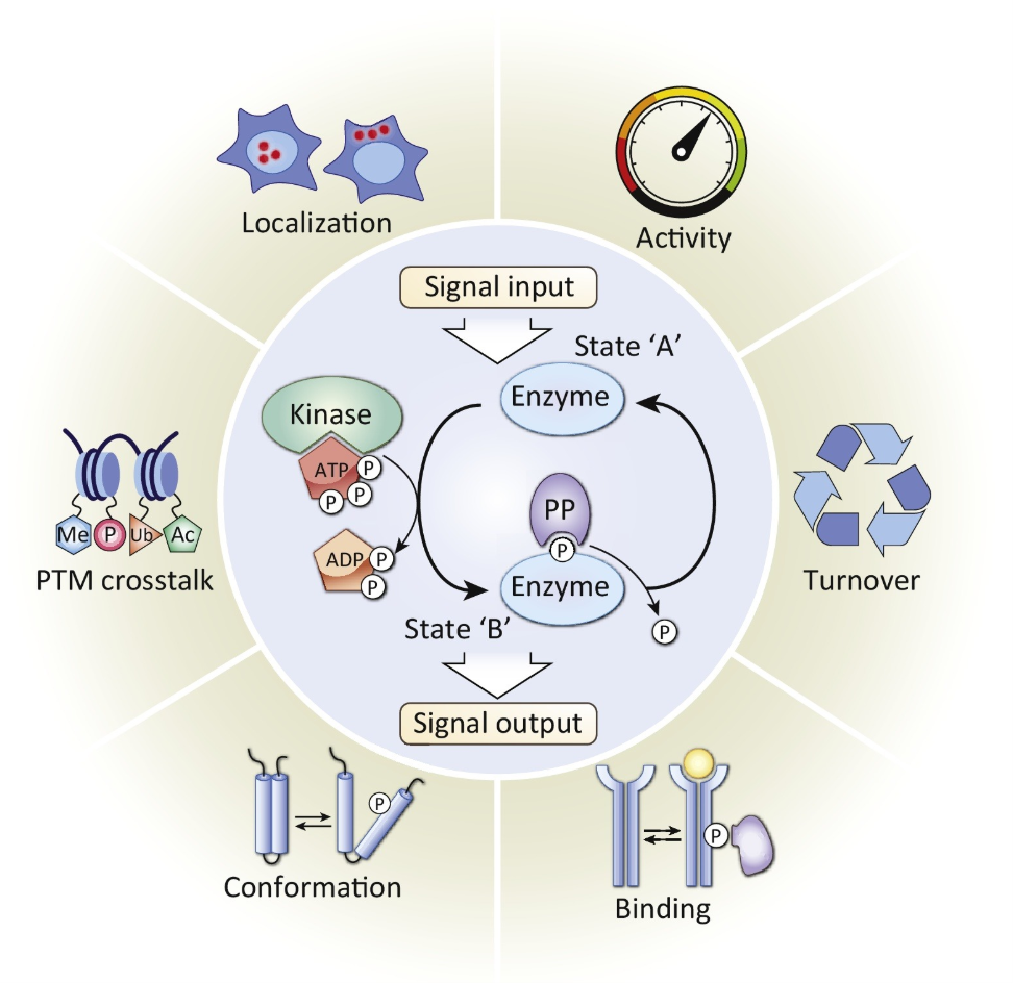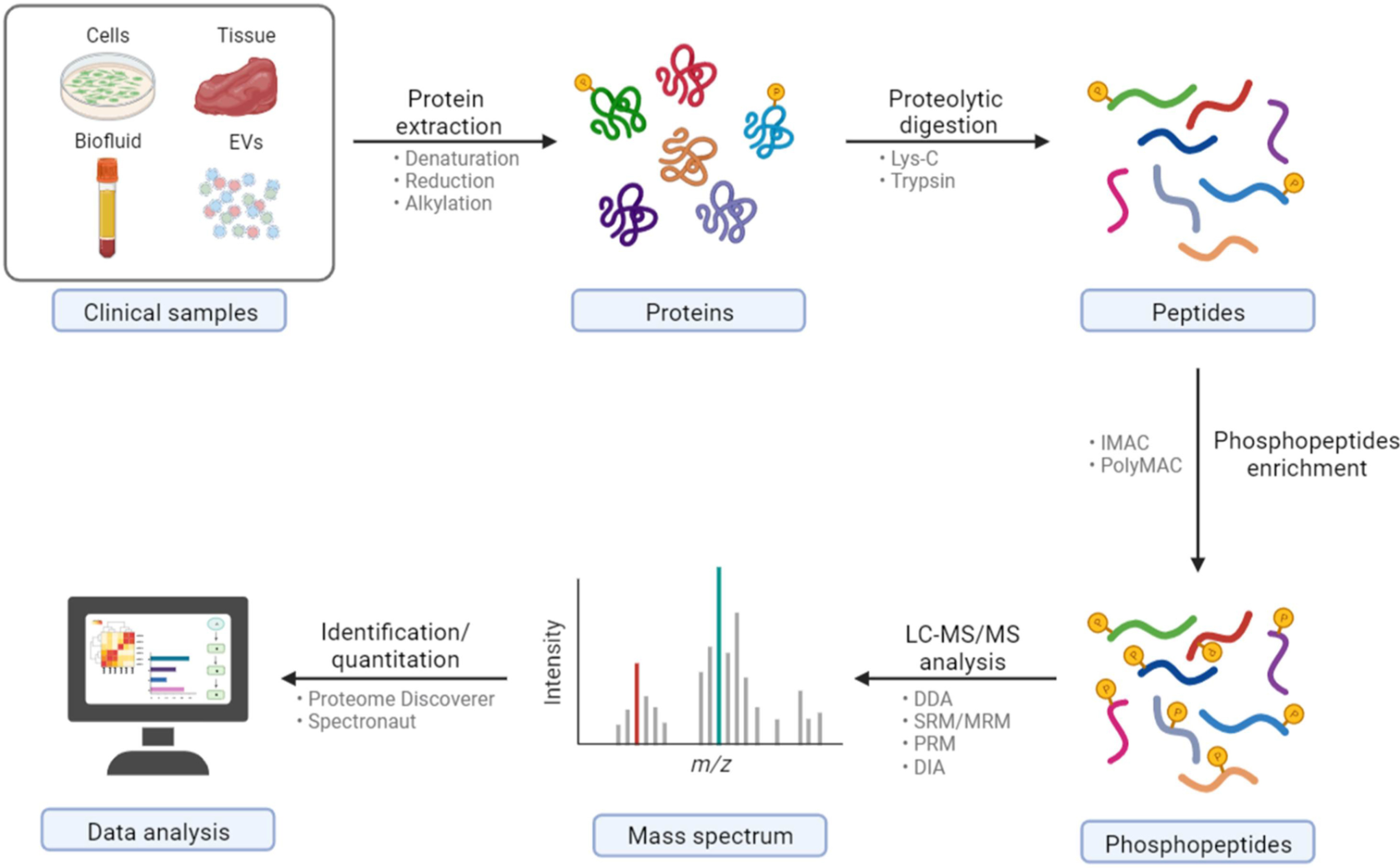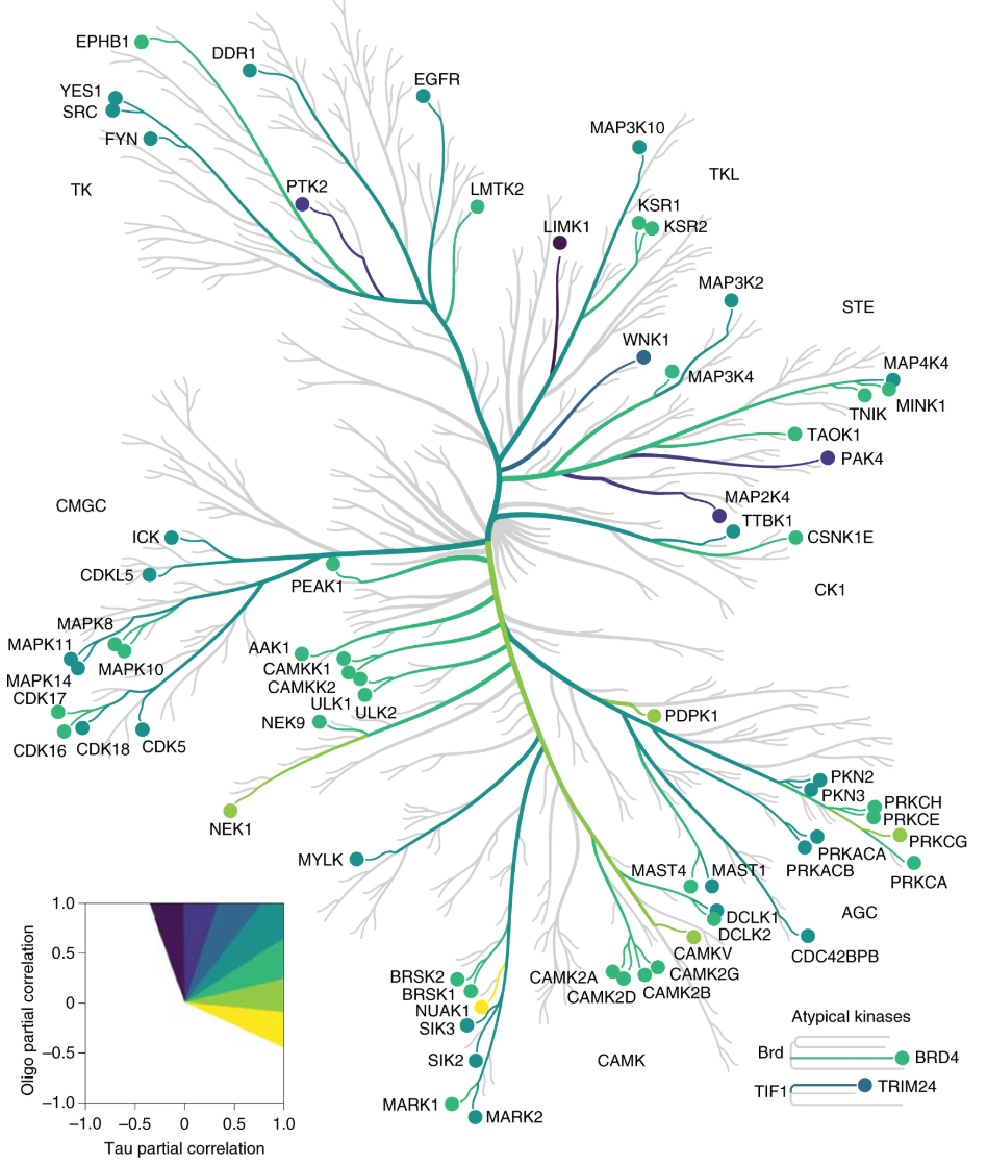Phosphoproteomics Services
Phosphorylation is a pivotal, reversible post-translational modification (PTM) that can profoundly affect protein conformation, activity, stability, and interactions. It regulates key cellular processes such as the cell cycle, apoptosis, metabolism, and signal transduction by introducing phosphate groups at specific sites, thereby switching proteins between active and inactive states. These intricate modifications are essential for maintaining cellular homeostasis and are often implicated in disease onset when dysregulated. To understand these complexities at scale, researchers turn to Phosphoproteomics which systematically examines protein phosphorylation patterns, revealing how kinases, phosphatases, and their substrates collaborate to control vital biological functions in both healthy and pathological conditions.

Figure 1. Reversible Protein Phosphorylation Is a Molecular Switch Mechanism
Essential to Phosphoproteomics is the implementation of specialized enrichment strategies that selectively capture low-abundance phosphopeptides from complex samples. Techniques such as immobilized metal affinity chromatography (IMAC), titanium dioxide (TiO₂) chromatography, and antibody-based methods bind phosphorylated residues, boosting detection sensitivity and specificity. Subsequently, high-resolution LC-MS/MS instrumentation pinpoints phosphosite locations and quantifies their relative levels. Advanced bioinformatic platforms integrate these large datasets, mapping signaling cascades and cross-talk among kinases, phosphatases, and target proteins. By accelerating the discovery of regulatory nodes and disease-associated phosphorylation patterns, these workflows highlight the power of Phosphoproteomics in unraveling complex cellular mechanisms and guiding therapeutic innovation.
Service at MtoZ Biolabs
MtoZ Biolabs provides a comprehensive Phosphoproteomics Services which unite state-of-the-art enrichment protocols with high-resolution LC-MS/MS. IMAC and TiO₂ strategies maximize phosphopeptide coverage, while robust instrumentation enables precise identification and quantification. Our dedicated bioinformatics team provides thorough data interpretation, allowing researchers to trace kinase-substrate connections, discover potential therapeutic targets, and elucidate disease-relevant signaling events. Whether investigating oncogenic pathways, neurological disorders, or fundamental cellular regulation, this Phosphoproteomics Services offer an adaptable, end-to-end solution designed to illuminate the intricacies of protein phosphorylation, ultimately propelling breakthroughs across academic, clinical, and biopharmaceutical research.
Analysis Workflow

Figure 2. General Workflow of Phosphoproteomics Services
Service Advantages
1. High-Efficiency Enrichment
We use IMAC, TiO₂, and antibody-based protocols for precise capture of low-abundance phosphorylation events, ensuring reliable upstream data for any study.
2. Cutting-Edge Instrumentation
State-of-the-art LC-MS/MS platforms drive our Phosphoproteomics pipeline, delivering high-resolution, accurate-mass data that uncovers both known and novel phosphosites.
3. Robust Bioinformatics
A proven analysis framework provides in-depth phosphoproteomics insights, enabling confident identification, quantification, and interpretation of key regulatory events.
4. End-to-End Customization
Tailored experimental designs, refined sample preparation, and flexible reporting formats address diverse scientific goals and publication requirements.
Applications
1. Cancer Research: Identify oncogenic kinases, characterize tumor-specific phosphorylation events, and refine targeted therapies through advanced phosphoproteomics.
2. Neuroscience: Uncover signaling disruptions in neurodegenerative diseases and map synaptic protein networks with comprehensive phosphoproteome profiling.
3. Immunology: Elucidate phosphorylation-driven immune responses and uncover novel targets for immunotherapies, bolstered by our Phosphoproteomics Services.
4. Metabolic Disorders: Investigate dysregulated phosphorylation pathways linked to diabetes, obesity, and other metabolic syndromes using targeted phosphorylation analysis.
5. Drug Discovery: Validate kinase inhibitors, monitor drug efficacy, and explore off-target effects at the phosphoproteome level.
6. Biomarker Development: Detect and quantify phosphorylation-based indicators for diagnostics and personalized medicine.
Case Study
Leveraging Phosphoproteomics Services to Uncover Alzheimer’s Disease Pathophysiology
In Alzheimer’s disease (AD), amyloid-β plaques and tau tangles undermine neural function, yet the precise phosphorylation events remain elusive. Through an advanced Phosphoproteomics Services integrating specialized phosphopeptide enrichment (tyrosine, serine, and threonine) with high-resolution LC-MS/MS, researchers mapped the phosphoproteome in temporal cortex tissue from Alzheimer’s disease patients and age-matched controls. They identified co-correlated clusters tied to phospho-tau levels, microglial reactivity, and neuronal synaptic changes, revealing a strong inverse relationship between synaptic proteins and inflammatory markers. Specific phosphosites on kinases and newly implicated signaling factors aligned with distinct peptide modules, providing deeper insight into disease progression. Data-driven modeling then highlighted predictive peptide clusters associated with AD severity. Phosphoproteomics Services offered a rich, site-specific view of pathology-related signaling events, enabling researchers to pinpoint key molecular targets and refine strategies for tackling AD pathogenesis.

Morshed, N. et al. Nat Aging. 2021.
Figure 3. Kinome Map of All Kinases with Phosphopeptides That were Significantly Associated with Tau or Oligo Cluster Centroids
Deliverables
1. Comprehensive Experimental Details
2. Materials, Instruments, and Methods
3. Total Ion Chromatogram & Quality Control Assessment
4. Data Analysis, Preprocessing, and Estimation
5. Bioinformatics Analysis
6. Raw Data Files
With an unwavering commitment to scientific rigor, MtoZ Biolabs' Phosphoproteomics Services leverage advanced technologies, expert guidance, and robust data analytics to illuminate intricate phosphorylation networks. Feel free to reach out for consultation on your specific needs.
MtoZ Biolabs, an integrated chromatography and mass spectrometry (MS) services provider.
Related Services
How to order?







